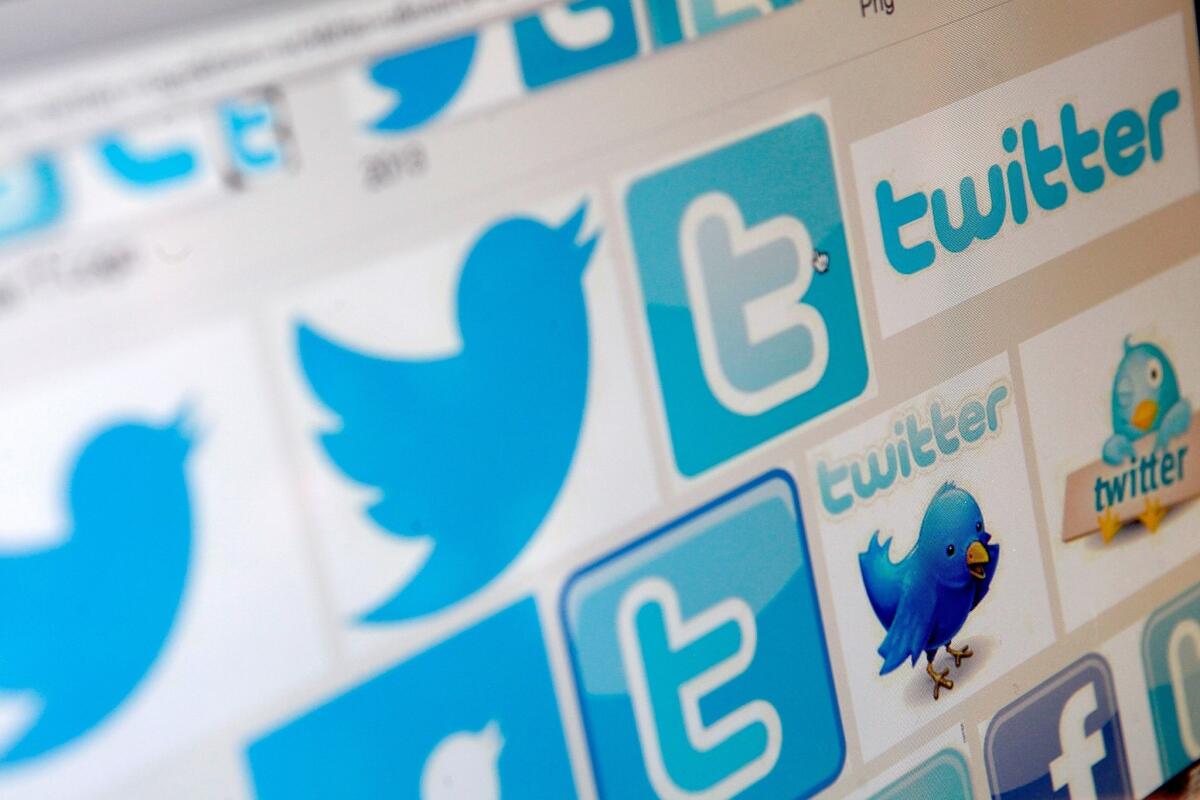Twitter’s IPO: Questions and answers

NEW YORK — Twitter on Thursday disclosed in a tweet that it had confidentially filed for an initial public offering — a major step for the popular micro-blogging site.
But that was about all the company said, leaving Wall Street analysts and investors scratching their heads and raising a host of questions.
How will Twitter’s IPO work?
At this stage, only Twitter and its investment bankers know for sure.
Experts expect Twitter to use a traditional IPO process. They don’t expect the company to use a so-called Dutch auction for its IPO. In such a process, investors place bids based on how much they would pay for a number of shares. The offering price would be lowered until there are enough bidders to allocate shares.
Based on potential valuations of the company of about $9 billion to $10 billion, Twitter may seek to sell off shares representing perhaps 20% of the company, said Jay Ritter, a finance professor and IPO expert at the University of Florida. That means Twitter could be raising $1 billion to $2 billion in equity through its IPO, he said.
Can individual investors get in on the action?
It’s too early to know how much allocation retail brokerages might get of Twitter stock.
Shares in high-profile IPOs are usually allocated to the best clients of a deal’s underwriters. That’s probably going to be big institutional investors that are the most treasured customers of the investment banks bringing Twitter to the stock market, noted John Coffee, a securities law expert at Columbia Law School.
In Facebook’s case, retail brokerages wound up getting an estimated 25% of Facebook’s allocations, Ritter said.
Retail investors would probably be forced to clamor for shares on the stock market once the initial holders of IPO shares start selling, Coffee said. That could make it riskier if hunger for shares sharply pushes up their price: “Hot IPOs are wonderful if you can get an allocation,” Coffee said. “It’s much more dangerous to buy in the secondary market, at the top of the market.”
What is the JOBS Act, and how does it affect the IPO process?
The Jumpstart Our Business Startups Act was enacted in 2012. The law allows “emerging growth” companies — defined as having less than $1 billion in revenue — to file their initial IPO papers confidentially with the U.S. Securities and Exchange Commission.
A primary goal was to shield companies’ strategy and financial information from competitors. “The main advantage for Twitter is it’s keeping the information out of the eyes of competitors,” Ritter said.
Staff members in the SEC’s division of corporation finance review companies’ prospectuses, known as S-1 filings. They send letters to companies asking for more information, or ordering changes in how they report their finances. Under the JOBS Act exception, those documents — initial and revised filings, and exchanges with the SEC — will become public 21 days before the IPO “road show,” when companies pitch their stories to investors, Coffee said.
Should investors be extra cautious given the dearth of information leading up to the IPO?
No, Ritter says, because the filings will become public before the IPO: “There will be plenty of time to digest the information once it’s released.”
Coffee, however, said the initially confidential treatment could lead companies to attempt more aggressive accounting techniques, which an overworked SEC may miss. “It’s going to invite people to be a little bit more aggressive because they don’t face the same degree of embarrassment,” he said.
Once Twitter goes public, what will be its ticker symbol? Which exchange will it be listed on?
Also unclear. The Nasdaq Stock Market and New York Stock Exchange are likely to be feverishly courting Twitter behind the scenes.
Such a popular stock listing would be a boon to either of the rival exchanges, and could help redeem Nasdaq after a series of glitches, particular with Facebook’s IPO in May 2012.
From 2011 until now, Nasdaq is ahead of the NYSE for tech IPOs — 55 to 53, according to Nasdaq data.
But so far this year, the NYSE has won 17, or 61%, of the 28 tech IPOs, according to the NYSE.
Spokesmen for both exchanges declined to comment.
More to Read
Inside the business of entertainment
The Wide Shot brings you news, analysis and insights on everything from streaming wars to production — and what it all means for the future.
You may occasionally receive promotional content from the Los Angeles Times.










